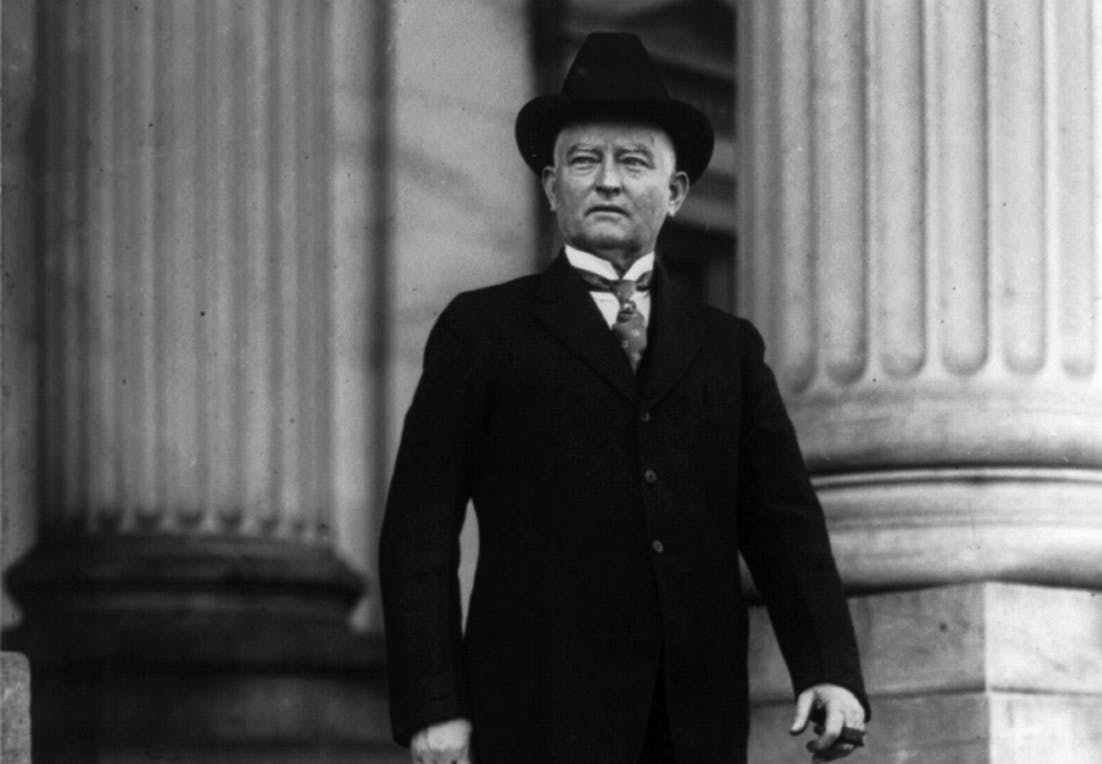Now for the Vice President
In the wake of January 6, independence is something to look for in the person who would be first in the line of succession.

The primary voters having spoken on the presidential candidates, it’s none too soon to be thinking about vice presidents. We’re less worried about who the vice presidential nominees are than about finding someone who understands the constitutional concept of the office. Meaning, a grasp of the fact that the vice president is not an aide to the president, and cannot be instructed or assigned duties by the president, but rather is an independent leader of the Senate.
We broached this whole point in an editorial called “A Lifeboat for Kamala Harris.” At the time, the press was full of reports of the deteriorating relationship between Vice President Harris and the commander-in-chief. Faced with what CNN called “entrenched dysfunction,” it seemed, we reckoned, an apt moment for Ms. Harris to become a “truly radical vice president” and “restore the highest office in the Senate to its original constitutional concept.”
The chance for Ms. Harris, as we saw it, was to shift her base of operations to the Capitol from the White House. We noted that, constitutionally speaking, “the vice president doesn’t report to the president,” and certainly can’t be fired by him or her. “She can’t even be told what to do,” we explained. Ms. Harris, after all, “was elected in her own right.” It’s not even clear, technically speaking, whether the vice president is part of the executive branch.
While opinions vary on this head, feature as how the vice president’s one assignment, per the national parchment, is to serve as the president of the Senate. In the upper chamber, too, the vice president is granted the tie-breaking power — nothing to sneeze at, especially when, as early in the Biden administration, the Senate is evenly divided. In sum, there’s every reason for the vice president to feel at home on Capitol Hill.
Nowhere did that become more salient than during the leadup to January 6 when Vice President Pence was being importuned by President Trump to send back the electoral votes from some of the states after the 2020 election. Mr. Pence informed Mr. Trump the Constitution did not grant him the power, in his role as President of the Senate, to do that. It was as courageous an act of fidelity to the Constitution as we’ve seen, and it cost Mr. Pence politically.
As Mr. Trump and Republicans weigh prospective candidates for the No. 2 spot on the ticket for November, one hopes Mr. Pence’s example of independence would be seen as a prerequisite. Some, at least, of the leading prospects have spoken favorably of Mr. Pence’s actions on January 6. “Absolutely, he did the right thing,” Senator Scott of South Carolina has said of the former vice president. Governor DeSantis, too, said Mr. Pence “did his duty.”
Governor Noem of South Dakota agreed that Mr. Pence did the “right thing.” Another vice presidential prospect, though, Representative Elise Stefanik, says she would have taken a different approach. “I would not have done what Mike Pence did,” she told CNN. “I don’t think that was the right approach.” It was, though, Mr. Pence’s reading of the Constitution and his grant of power to exercise. No one else’s, at the time.
For subservience to the president is not how the Constitution envisions the role of the vice president. Admittedly, the office has provoked mixed reviews from those who have held it. The first veep, John Adams, was so overawed by President Washington that the vice president was nearly unmanned by “a great difficulty as to how to act. I am vice president, yes. And in this I am nothing.” And yet, he mused, “I may be everything.”
The most quoted appraisal of the vice presidency comes from John Nance “Cactus Jack” Garner, who served as No. 2 during FDR’s first two terms. The office, Garner quipped, “is not worth a bucket of warm spit.” Garner, it seems, regretted ceding the House speakership. A failure of imagination, perhaps. For whoever accedes to the office in 2025, though, the opportunity awaits to fulfill a constitutional post that stands apart from all others.

